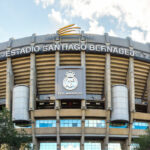Chicago currently taxes gross revenues resulting from sports betting at 2% for Cook County and 15% for the state. The City Council is currently considering adding an extra 2% city tax that would bring the total tax levels collected from sports betting activities in the city to 19%.
Mayor Lightfoot Believes the 2% City Tax to Be “Fair”
The city administration is currently reviewing a sports betting ordinance that would appear in front of the Council’s License and Zoning Committee for approval. Mayor Lori Lightfoot is looking forward to receiving a “fair share of the revenues” from sports betting in the city, arguing that the 2% tax would perfectly match the existing county tax.
Plus, she also stated that the tax would help City Hall financially support part of the infrastructure work necessary to accommodate sports betting in the city. The money would also shoulder the regulatory supervision of the process.
Casino magnate Neil Bluhm owns Rivers Casino in Des Plaines and Rush Street Gaming, a company that belongs to two distinct groups planning on setting up a new casino in Chicago. Rivers Casino already has a sportsbook on the verge of losing business provided sportsbooks are allowed in the city or around any of the city’s five-city stadiums. It’s also Bluhm’s opinion, but those fears have been dismissed by Lightfoot.
Bluhm, firm opponent of the city lifting its ban on sports betting, thinks the 2% tax is insignificant, as it would only generate around $1 million in city taxes. At the same time, city casinos would lose around $12 million a year in revenue. The casino magnate has a very straightforward explanation for the phenomenon: city residents and tourists would be busy placing their sports wagers at Wrigley Field or United Center future sportsbooks that would open their gates a lot sooner than any new casino under construction.
Biting into City’s Future Tax Revenue from Betting
Instead of betting on slots and roulette, these people would focus on sports betting. For every dollar of sports wagering that the city would be losing, they would be also losing around $3-$4 in casino revenues. Ultimately, according to Bluhm, casino gambling is where the big tax money for the city and state would come from.
Wrigley Field Holdings and United Center representative Mara Georges also referred to the 2% city tax as a “mistake”. They argued that the city’s professional sports teams along with their fans are already forced to pay one of the highest amusement taxes in the US country. If approved, the new tax would be paid by any person deciding to set foot inside one of these stadiums hosting a sportsbook.
In turn, Georges believes this would push even more people to go online to wager on sports. More than 86% of punters are already taking their business to virtual betting platforms. If approved, the ordinance might also convince more people to visit the suburbs to bet on sports instead of opting for city-based sportsbooks. Eventually, the total tax on sports betting would get so high that the revenues would start dropping, failing to reach the municipality’s goals.




